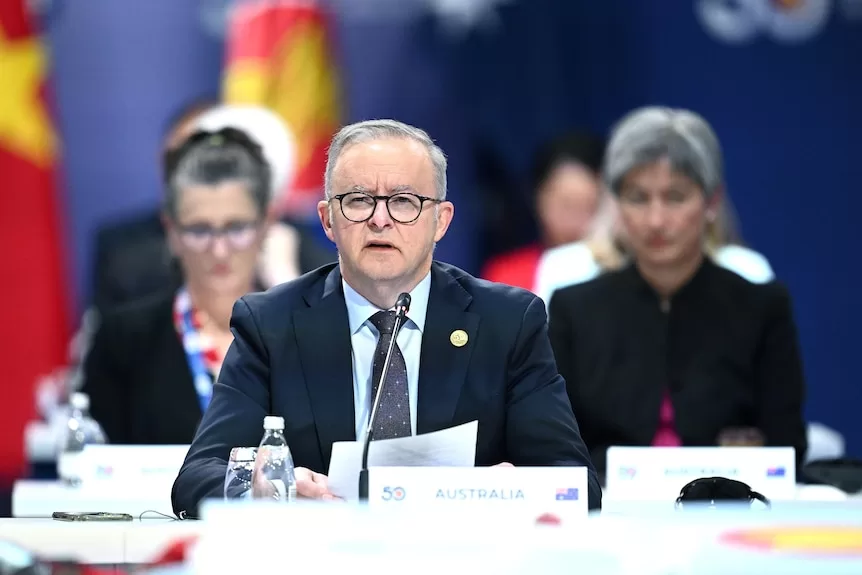- In short: Australia and South-East Asian nations have endorsed the so-called Melbourne Declaration at the ASEAN-Australia Special Summit in Victoria.
- The statement calls for “peace, security and stability” in the region, but omits some language around China which Australia initially wanted included.
- The declaration also calls for a ceasefire in Gaza, but omits stronger criticisms of Israel’s conduct.
Australia and South-East Asian leaders have called for countries to avoid “unilateral actions” that “endanger peace, security and stability” in the South China Sea in the wake of another confrontation between China and Philippines in the contested waters.
The so-called Melbourne Declaration was handed down by Prime Minister Anthony Albanese and ASEAN leaders after they wound up a special summit designed to bolster Australia’s commercial and strategic ties with the critical region.
The final statement said leaders “recognise the benefits of having the South China Sea as a sea of peace, stability, and prosperity” and “encourage(s) all countries to avoid any unilateral actions that endanger peace, security and stability in the region”.
But they have watered-down language that Australia originally proposed for the final declaration from the summit, removing any references to China’s “militarisation of disputed features” in the South China Sea.
The Melbourne Declaration also does not include Australia’s initial proposal to call on “both parties” to abide by the 2016 international ruling, which dismissed China’s claims to much of the disputed territory — a clear reference to Beijing’s decision to ignore the decision.
South-East Asian states closest to China have typically refused to back language that directly criticises Beijing on sensitive issues like the South China Sea.
While Philippines President Ferdinand Marcos Jr has again criticised Beijing’s conduct this week, Malaysian Prime Minister Anwar Ibrahim struck a very different tone, declaring that he didn’t believe conflict was likely in the South China Sea.
Mr Albanese told journalists after the summit that Australia had to build a consensus with all ASEAN countries.
“People have to compromise,” he said.
“To get a statement between Australia and ASEAN … it wouldn’t be the same if written by one country.”
Officials from Australia and South-East Asia were also engaged in sometimes difficult negotiations over what the final statement would say about the war in Gaza, with Malaysia and Indonesia pushing for a forceful denunciation of Israel.
The final Melbourne Declaration calls for “an immediate and durable humanitarian ceasefire” and for “rapid, safe, unimpeded and sustained humanitarian access to all those in need”.
But stronger criticisms on Israel’s conduct were not included. The declaration also includes an indirect condemnation of the Hamas terrorist attacks on October 7, and a call to release all hostages held by the group.
As South-East Asian leaders left the city, Mr Albanese hailed the summit as a success, saying the nations represented had welcomed Australia’s plans to ramp up investment in the region.
